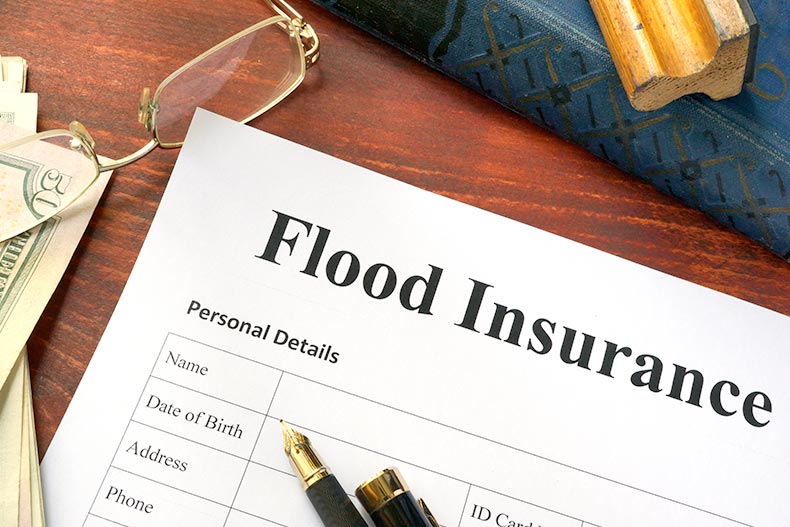Have you been planning your next move but found there are a few logistics holding you back? Many 55+ adults wonder where homeowner’s insurance fits into the retirement stage of their journey. Coverage is often presented as a stagnant, universal truth of homeownership. But what we prioritize in terms of a good policy shifts dramatically over time. Each stage of life brings a unique set of needs, especially when it comes to our home.
If your goal is to downsize, stress less, and enjoy life more, understanding the best homeowner’s insurance policies for retirees is the first step in finding your own slice of paradise. Check out these 6 helpful tips for buying homeowner’s insurance.
As you enter your golden years, the decision to downsize or move into your dream retirement home often comes with a checklist of responsibilities. Among these, securing the right homeowners insurance policy is critical. For seniors, homeowners insurance needs can differ significantly from those of younger homeowners, as priorities and risks evolve with age. From protecting your home against natural disasters to saving on premiums, understanding your options can lead to significant benefits.
Here’s a detailed guide to help you navigate the process of selecting homeowners insurance for seniors, along with six essential tips to ensure your property and finances are well-protected.
Why Homeowners Insurance Matters for Seniors
Homeowners insurance serves as a safety net, protecting your most significant investment—your home—and everything inside it. For seniors, it also offers peace of mind, ensuring you can weather unexpected events like natural disasters, theft, or liability claims without financial strain.
However, seniors often have unique needs and considerations:
- Many are downsizing to smaller homes or condos.
- Retirement homes may be located in regions prone to specific risks like flooding, hurricanes, or wildfires.
- Fixed incomes make managing premiums and deductibles a top priority.
Choosing the right policy tailored to your lifestyle and location is essential for ensuring comprehensive coverage without breaking the bank.
Six Key Tips for Choosing Homeowners Insurance for Seniors
1. Consider Raising Your Deductible

If you’ve been prioritizing budget policies for your property, it’s time to look into increasing your deductible. USA Today advises 55+ policyholders to consider if a low deductible is worth issuing a claim. For example, would you issue a claim for $250? What about $500?
“If the answer is no, then why pay for the low deductible you don’t plan to utilize?” USA Today quotes Mark Beaver, a financial planner at Keeler & Nadler Financial Planning and Wealth Management. “Another reason to potentially raise the deductible is if you have an adequately funded emergency fund. If so, you have the means to cover a higher deductible, like $1,000, which will reduce your premiums each year.”
Raising your deductible will ensure more reliable, affordable premiums as well as a safety net for out-of-pocket costs.
2. Don’t Sweat the Small Stuff

One of life’s greatest lessons is not to sweat the small stuff. As first-time homeowners, we might be overly eager to report every little detail to our insurers. Mature policyholders understand there’s a bit more nuance to claims. This tip pertains to remaining in good standing with your current policy and getting the most out of any new policy you might consider switching to.
In general, avoid making small claims. If you can afford to shoulder costs less than $1,000, this is a good benchmark to aim for. Insurance agents share any and all claims data—including harmless phone calls—with underwriters. Relying on your homeowner’s policy for large-scale claims only keeps you in good standing and serves as a prudent strategy for avoiding unexpected rate hikes.
3. Pay Close Attention to Disaster Coverage

Retirement properties are often found in some of the most beautiful natural locations around the U.S. Active retirees may have mountains, rivers, and beaches on their bucket lists. However, it’s important not to forget the forest fires, hail damage, and thunderstorms that come with these incredible getaways.
Standard homeowners insurance policies generally cover destruction and damage to the interior and exterior, the loss or theft of personal property, and personal liability for harm to others in the case of accidents and injuries that occur on property. While that may sound like a broad, sweeping statement, defining the nuances of each policy is a bit more complex.
Take the extra time to identify just what your policy covers in terms of weather and acts of nature. Decide what your risk factors are based on geographic location. We recommend asking neighbors within the 55+ community you’re interested in as well as examining historic trends to get an idea of what you may need from a robust homeowner’s insurance policy. If you find your policy is lacking, consider supplemental coverage options.
A little extra diligence upfront can save you from unexpected out-of-pocket expenses later.
4. Consider Supplemental Flood Protection

Have you finally found the perfect waterfront property? What about that beautiful cabin tucked away on an alpine flood plane? Before you head off to enjoy a day on the water, make sure your retirement property is protected.
Flooding is one of the most common and costly natural disasters, yet it’s not covered by standard homeowners insurance policies. If you’re purchasing a home in a flood-prone area—or anywhere near a body of water—it’s essential to secure supplemental flood insurance.
The cost of flood insurance depends on your home’s location and risk level, but even minor flood damage can result in tens of thousands of dollars in repairs. Investing in a robust flood insurance policy will protect your finances from being “washed away” in the event of a natural disaster.
Don’t let flood damage take your finances underwater. Plan ahead with a policy that suits your needs.
5. Bundle Your Policies for Savings

By the time you’re 55 or older, you likely have multiple insurance policies, such as auto, life, or health insurance. Bundling these policies with the same provider can result in significant discounts.
Many insurance companies offer senior-specific bundling programs that reward long-term customers. For instance, combining your homeowners and auto insurance can save you up to 20% on premiums. Ask your provider about multi-policy discounts to take advantage of these savings.. T
his strategy may end up saving you significant money, which means more funds for hobbies, travel, and relaxation.
6. Renovating? Plan Ahead!

Some 55+ homeowners prefer a low-maintenance, turn-key property in an age-restricted, planned community. Others enjoy a happy medium with some room for DIY projects and renovations. If you’re in the latter group, consider your long-term plan for renovating your retirement home.
What materials will you be using and how will these materials stand up to the test of time and weather? Are you planning on installing structures such as pools and ponds which drive insurance premiums up by at least 10%? These factors play an important role in determining your budget and homeowner’s policy options once all is said and done. We recommend drafting a preliminary renovation plan prior to purchasing your next policy.
Additional Considerations for Seniors
Beyond the six tips outlined above, there are several other ways seniors can optimize their homeowners insurance:
- Look for Senior Discounts: Some insurance providers offer reduced rates for seniors due to their responsible lifestyles and lower-risk behaviors.
- Evaluate Liability Coverage: If you host family gatherings or live in a community where socializing is frequent, make sure your liability coverage is sufficient to protect you against potential accidents or injuries on your property.
- Opt for Replacement Cost Coverage: This type of policy ensures you’ll receive the full cost of replacing damaged or lost items rather than their depreciated value.
Finding the Right Policy
Choosing homeowners insurance as a senior involves balancing affordability, coverage, and peace of mind. Start by assessing your specific needs, such as your home’s location, budget, and future plans. From there, consult with insurance providers to compare policies and find the best fit.
Looking for more retirement finance tips? Check out Homebuying for Retirees: Should You Pay Cash or Get a Mortgage?







